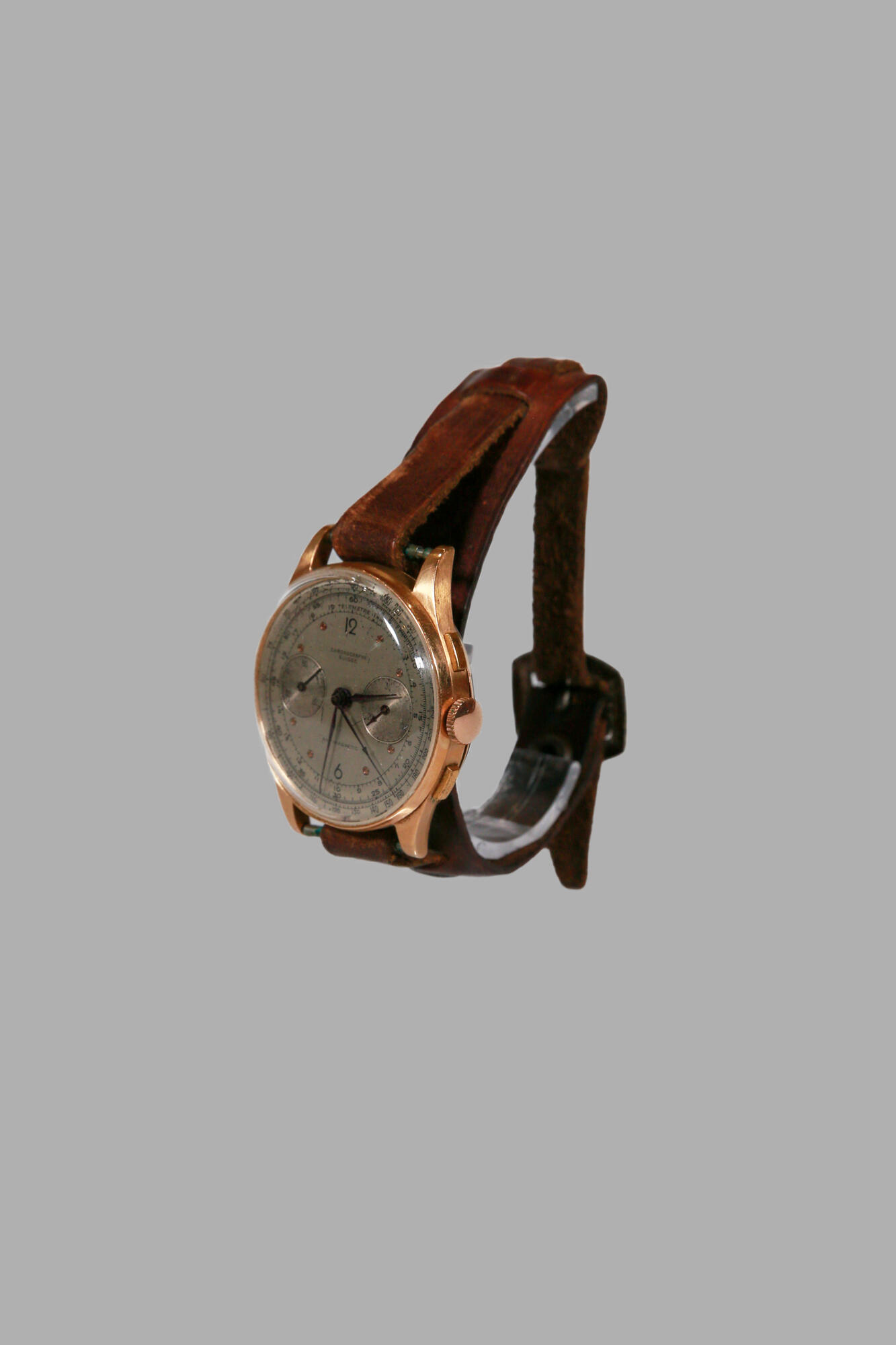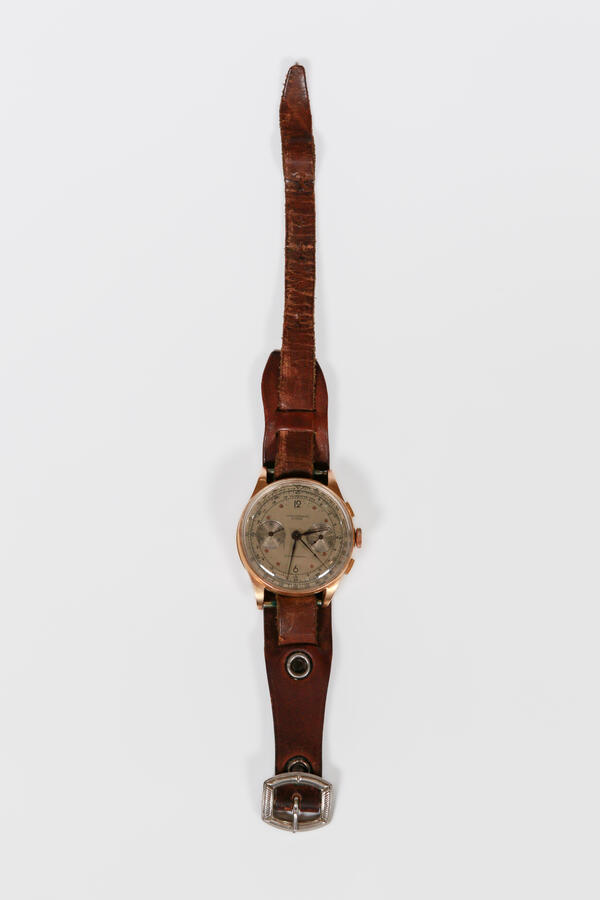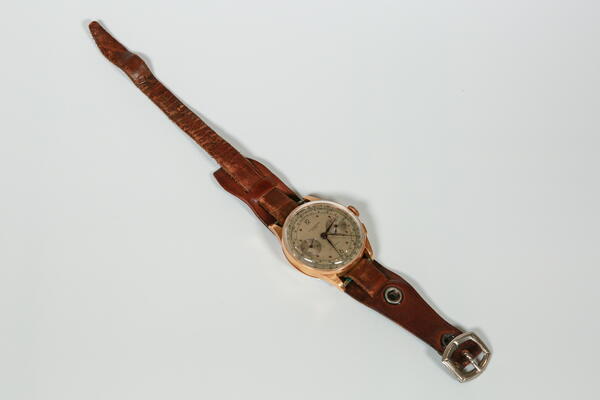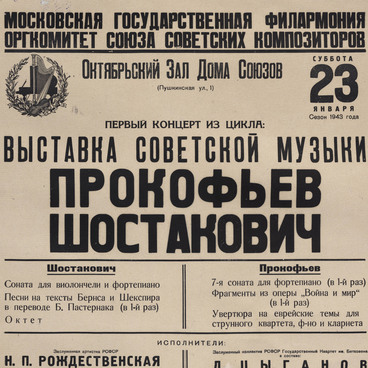Sergei Prokofiev bought this Chronographe Suisse watch in the 1940s. During that time, the watches of this Swiss company were very popular among tourists because of their relatively low price.
Prokofiev was incredibly punctual and valued his time. His secretary Georgy Gorchakov reminisced, “Sergei Sergeyevich was an amazing person: he was always absorbed in his work and had a very tight schedule. Sometimes, he would set up a meeting, and the other person would arrive five minutes earlier. Sergei Sergeyevich would come out of his office, point to his watch, and go back again. If a visitor was late, he would definitely cancel the appointment.”
The composer’s custom to work in a timely manner was highlighted by the Soviet director Sergei Eisenstein whose films were scored by Prokofiev. He reminisced, “Prokofiev told me, ‘You will have the music by noon.’ We leave the small projection room. Although it is now midnight my mind is at rest. For I know that at exactly 11.55 a.m. a small, dark blue automobile will come through the gates of the film studio. Sergei Prokofiev will emerge from the car. The next piece of music for ‘Alexander Nevsky’ will be in his hands.”
Eisenstein admired the composer’s punctuality, writing, “Prokofiev works like a clock. This clock neither gains nor loses time. Like a sniper, it hits the very heart of punctuality. Prokofiev’s punctuality is not a matter of business pedantry. His exactness in time is a by-product of creative exactness. Of absolute exactness in transposing the imagery into a mathematically exact means of expression, which Prokofiev has harnessed with a bridle of hard steel.”
“Prokofiev felt the heartbeat of time, ” said the Soviet writer Ilya Ehrenburg. Prokofiev usually worked in the morning: he got up early, composed, played the piano, or conducted an orchestra. He was an industrious person and worked even on holidays, including his birthday and New Year’s Eve. The composer was strict with himself and even wanted to cut down on sleep to be able to work more. In his diary entry of May 21, 1932, he wrote, “I am seized with the idea of cutting down on my hours of sleep. The moment one realizes that sleep is not necessary for true repose, it becomes necessary to reduce it.”
Prokofiev was incredibly punctual and valued his time. His secretary Georgy Gorchakov reminisced, “Sergei Sergeyevich was an amazing person: he was always absorbed in his work and had a very tight schedule. Sometimes, he would set up a meeting, and the other person would arrive five minutes earlier. Sergei Sergeyevich would come out of his office, point to his watch, and go back again. If a visitor was late, he would definitely cancel the appointment.”
The composer’s custom to work in a timely manner was highlighted by the Soviet director Sergei Eisenstein whose films were scored by Prokofiev. He reminisced, “Prokofiev told me, ‘You will have the music by noon.’ We leave the small projection room. Although it is now midnight my mind is at rest. For I know that at exactly 11.55 a.m. a small, dark blue automobile will come through the gates of the film studio. Sergei Prokofiev will emerge from the car. The next piece of music for ‘Alexander Nevsky’ will be in his hands.”
Eisenstein admired the composer’s punctuality, writing, “Prokofiev works like a clock. This clock neither gains nor loses time. Like a sniper, it hits the very heart of punctuality. Prokofiev’s punctuality is not a matter of business pedantry. His exactness in time is a by-product of creative exactness. Of absolute exactness in transposing the imagery into a mathematically exact means of expression, which Prokofiev has harnessed with a bridle of hard steel.”
“Prokofiev felt the heartbeat of time, ” said the Soviet writer Ilya Ehrenburg. Prokofiev usually worked in the morning: he got up early, composed, played the piano, or conducted an orchestra. He was an industrious person and worked even on holidays, including his birthday and New Year’s Eve. The composer was strict with himself and even wanted to cut down on sleep to be able to work more. In his diary entry of May 21, 1932, he wrote, “I am seized with the idea of cutting down on my hours of sleep. The moment one realizes that sleep is not necessary for true repose, it becomes necessary to reduce it.”






